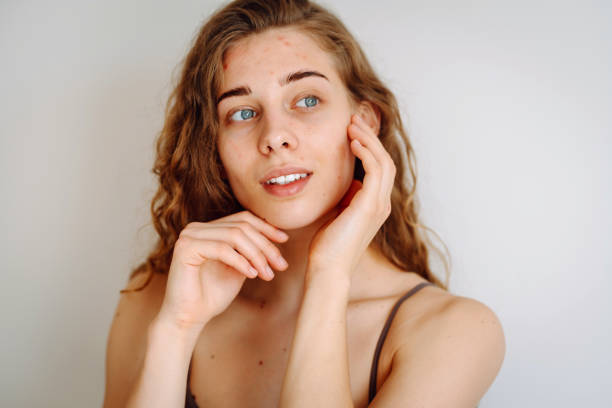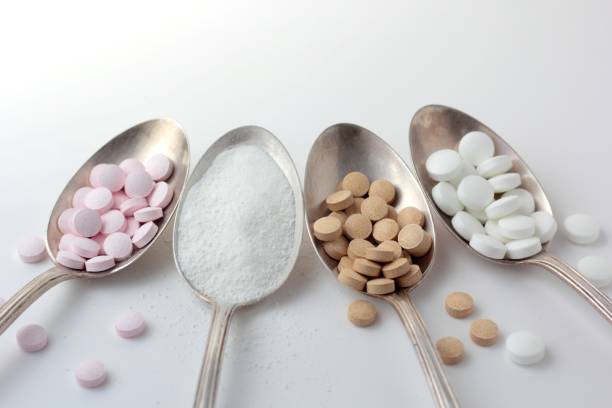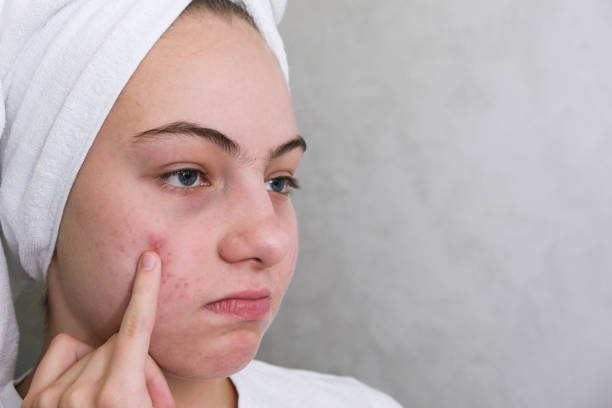Polycystic Ovary Syndrome (PCOS) is a hormonal disorder that affects millions of women worldwide, and acne is one of its most common symptoms. PCOS acne can be persistent and resistant to traditional treatments, causing frustration and emotional distress. But what causes PCOS acne, and how can it be effectively managed? In this article, we’ll delve into the connection between PCOS and acne, exploring the underlying hormonal imbalances, insulin resistance, and lifestyle factors that contribute to this condition. We’ll also discuss the various treatment options, from hormonal therapies to lifestyle changes, to help you regain control over your skin and overall health.
Understanding PCOS Acne
Polycystic Ovary Syndrome (PCOS) is a hormonal disorder that affects millions of women worldwide. One of the most common symptoms of PCOS is acne, which can range from mild to severe. PCOS acne is caused by hormonal imbalances, specifically high androgens (male hormones). This increases oil production, clogged pores, and inflammation, resulting in acne.
PCOS acne can appear on the face, chest, back, and buttocks as blackheads, whiteheads, papules, pustules, or cysts. It can be persistent and resistant to traditional acne treatments, causing frustration and emotional distress for many women. Additionally, PCOS acne can also be a sign of underlying hormonal imbalances, which can lead to more severe health issues if left untreated.
If you’re struggling with PCOS acne, it’s essential to consult a dermatologist or healthcare provider for proper diagnosis and treatment. They may recommend hormonal therapies, such as birth control pills or anti-androgen medications, to help regulate hormonal imbalances and reduce acne. Additionally, lifestyle changes, such as maintaining a healthy diet, exercising regularly, and managing stress, can help alleviate PCOS acne symptoms.
Causes of PCOS Acne

Hormonal imbalances are the primary cause of PCOS acne. High levels of androgens, such as testosterone, stimulate the oil glands in the skin, leading to increased oil production and clogged pores. This creates an ideal environment for bacteria to thrive, resulting in inflammation and acne. Other factors, such as genetics, stress, and certain medications, can also contribute to PCOS acne.
Insulin resistance, a common feature of PCOS, can also contribute to acne development. When the body becomes resistant to insulin, it produces even more insulin to compensate, leading to increased androgen production and acne. Furthermore, PCOS is often associated with inflammation, which can exacerbate acne symptoms and make them more challenging to treat.
It’s crucial to address the underlying hormonal imbalances and metabolic issues to manage PCOS acne effectively. A healthcare provider may recommend hormonal therapies, such as birth control pills or anti-androgen medications, to help regulate hormonal imbalances and reduce acne. Additionally, lifestyle changes, such as maintaining a healthy diet and exercising regularly, can help improve insulin sensitivity and reduce inflammation.
Read More: Is Shampoo Bad For Curly Hair?
Treating PCOS Acne

Treating PCOS acne requires a comprehensive approach that addresses hormonal imbalances, inflammation, and lifestyle factors. Topical treatments, such as retinoids, benzoyl peroxide, and salicylic acid, can help unclog pores and reduce inflammation. Oral antibiotics, such as doxycycline or minocycline, may also be prescribed to target bacterial infections and reduce inflammation.
Hormonal therapies, such as birth control pills or anti-androgen medications, can help regulate hormonal imbalances and reduce acne. These medications can also help alleviate other PCOS symptoms, such as irregular periods and excess hair growth. Additionally, lifestyle changes, such as maintaining a healthy diet, exercising regularly, and managing stress, can help improve insulin sensitivity, reduce inflammation, and alleviate PCOS acne symptoms.
Working with a healthcare provider to develop a personalized treatment plan that addresses your unique needs and health goals is essential. With the proper treatment and lifestyle changes, managing PCOS acne and improving your overall health and well-being is possible. Remember, PCOS acne is a treatable condition; you can achieve clear and healthy skin with the proper support and resources.
Managing PCOS Acne with Lifestyle Changes
Lifestyle changes can play a significant role in managing PCOS acne. By making healthy choices, you can help regulate hormonal imbalances, reduce inflammation, and improve overall skin health. Dietary changes, such as following a low-carb diet or reducing dairy and sugar intake, can help improve insulin sensitivity and minimize androgen production. Regular exercise, such as cardio and strength training, can also help improve insulin sensitivity and reduce inflammation. Additionally, stress management techniques, such as meditation and yoga, can help reduce stress hormones that can exacerbate acne.
Natural Remedies for PCOS Acne

While medical treatments are often necessary to manage PCOS acne, natural remedies can also help alleviate symptoms. Tea tree oil, aloe vera, and turmeric have anti-inflammatory and antibacterial properties that can help reduce inflammation and combat bacteria that can cause acne. Berberine, a natural supplement, can also help regulate hormonal imbalances and reduce acne. Additionally, probiotics can help improve gut health, which is linked to skin health and can help reduce inflammation. It’s essential to consult with a healthcare provider before trying new supplements or natural remedies to ensure they are safe and effective.
Further More: Is Jojoba Shampoo Good For Hair
Living with PCOS Acne
Living with PCOS acne can be challenging, but there are ways to cope with the emotional and physical impacts. Building a support network of family, friends, and healthcare providers can help you feel less isolated and more empowered to manage your condition. Practicing self-care, such as engaging in activities that bring you joy and practicing stress management techniques, can also help improve mental health and overall well-being. Additionally, connecting with others who have PCOS acne through online support groups or in-person support groups can provide a sense of community and help you feel less alone in your journey.
Conclusion
Polycystic Ovary Syndrome (PCOS) acne is a common and challenging condition that affects many women. It’s essential to understand the underlying hormonal imbalances and metabolic issues that contribute to PCOS acne. By addressing these factors through medical treatments, lifestyle changes, and natural remedies, you can help manage PCOS acne and improve your overall health and well-being. Remember, PCOS acne is a treatable condition; you can achieve clear and healthy skin with the proper support and resources. Don’t hesitate to contact a healthcare provider for guidance and support on managing PCOS acne.
FAQs
What is PCOS acne?
PCOS acne is a type of acne that occurs in women with Polycystic Ovary Syndrome (PCOS), a hormonal disorder that affects ovulation, hormones, and insulin resistance.
What causes PCOS acne?
PCOS acne is caused by hormonal imbalances, specifically high levels of androgens (male hormones) and insulin resistance, which lead to increased oil production, clogged pores, and inflammation.
How is PCOS acne different from regular acne?
PCOS acne is more persistent and resistant to traditional acne treatments due to underlying hormonal imbalances and insulin resistance. It may also be accompanied by other PCOS symptoms such as irregular periods, excess hair growth, and weight gain.
Can PCOS acne be treated?
Yes, PCOS acne can be treated with a combination of hormonal therapies, lifestyle changes, and topical treatments. Hormonal birth control pills, anti-androgen medications, and insulin-sensitizing medications may be prescribed to regulate hormonal imbalances and improve insulin sensitivity.
Can lifestyle changes help manage PCOS acne?
Yes, lifestyle changes such as following a low-carb diet, exercising regularly, managing stress, and getting enough sleep can help improve insulin sensitivity, reduce inflammation, and alleviate PCOS acne symptoms. Natural remedies like tea tree oil, aloe vera, and turmeric may also help reduce inflammation and combat bacteria that can cause acne.

